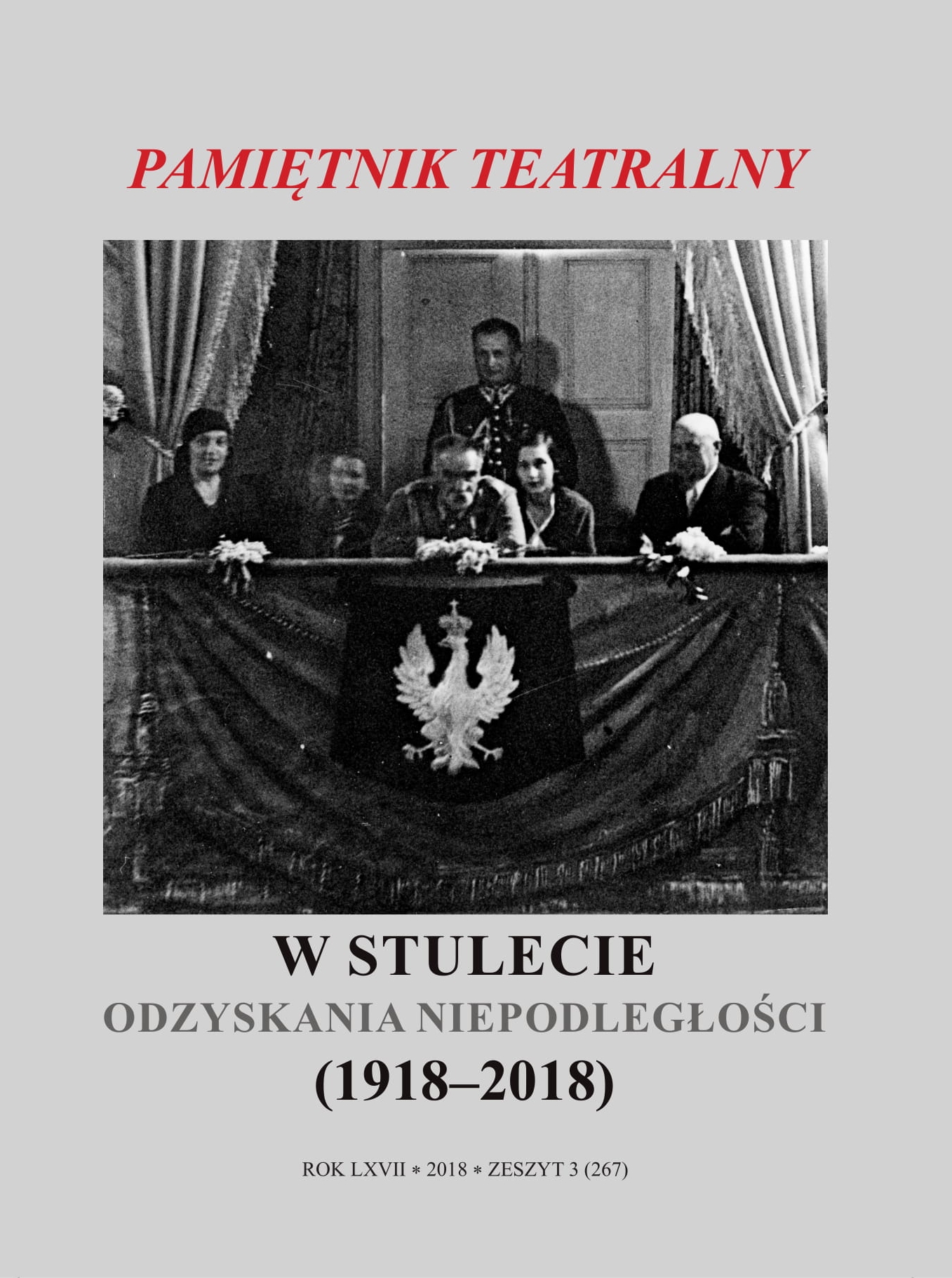Warszawski listopad teatralny 1918
A November 1918 Calendar of Warsaw Theatres
The Breakthrough Days
Author(s): Tomasz MościckiSubject(s): Theatre, Dance, Performing Arts
Published by: Instytut Sztuki Polskiej Akademii Nauk
Keywords: Polish theatre;theatre history;1918;Warsaw theatres;theatres in Warsaw in 1918;
Summary/Abstract: “A November 1918 Calendar of Warsaw Theatres: The Breakthrough Days” by Tomasz Mościcki presents events of the exceptionally stormy month in the capital of Poland at the time the country was regaining independence. Warsaw was a special place. It was the arena and focal point of the most significant political events: the return of Józef Piłsudski after his release from the Magdeburg prison, the formation of the new Polish government, the excitement of the people of Warsaw that mixed with their uncertainty about the future, about security in the streets and economic difficulties—and all these were accompanied with equally turbulent events in the theatres and around them.The author looks back on the repertories of dramatic theatres and the Opera, as well as the numerous “fringe” theatres, the cabarets. The latter were the quickest to respond to the unfolding events, often assuming the role of “spoken newspapers” that commented on the abruptly changing reality with the speed of lightning. They were the ones that functioned as Zeittheater, as opposed to the more respectable dramatic stages that proved to be too self-absorbed to really take note of the events. In November 1918, the dramatic theatres experienced something that would soon change the course of their history. Warsaw municipal theatres, managed so far by actors’ associations that had existed since 1915, were taken over by the city hall, following numerous debates and arguments in the municipal council and the press. The takeover took place just when Poland re-emerged as an independent country after 123 years under the yoke of foreign powers. At the same time, the Warsaw opera suffered one of the most acute crises in its history: the general manager resigned in the aftermath of a strike of the employees, and the future of the stage looked very uncertain indeed. November 1918 gave rise to some legends, which, perpetuated in memoirs, misshape the truth about the events of that period. While citing such accounts, the author attempts to establish the true turn of events based on contemporary press publications that were very thorough in reporting the events. The author quotes these press reports or their excerpts. They often reappear for the first time since their publication, and taken together, they make up a fascinating, albeit fragmentary, mosaic showing what the November 1918 theatre in Warsaw was like. Though the fast pace of events does indeed bring to mind a kaleidoscope rather than a static mosaic.
Journal: Pamiętnik Teatralny
- Issue Year: 267/2018
- Issue No: 3
- Page Range: 7-49
- Page Count: 43
- Language: Polish

